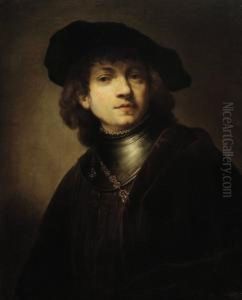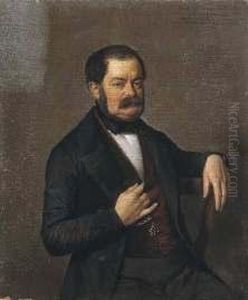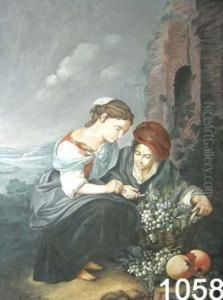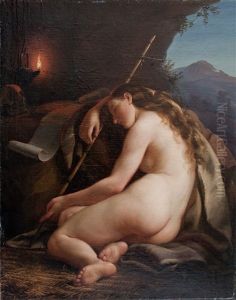Enrico Scuri Paintings
Enrico Scuri was an Italian painter, known for his historical and religious compositions as well as his involvement in the artistic and cultural life of Italy during a period marked by significant political and social changes. Born in Bergamo in 1805, Scuri was part of a Europe that was rapidly evolving, both politically and culturally, during the 19th century. His works reflect the stylistic transitions of the era, showcasing elements of Romanticism while also hinting at the emerging Realist movement.
Scuri's education in art began in his hometown, but his talent and ambition soon led him to further his studies in Rome, where he was exposed to the works of the great masters of the Renaissance and Baroque periods. This exposure had a profound impact on his artistic development, influencing his use of color, light, and composition. Throughout his career, Scuri's paintings would often evoke the grandeur and drama of these earlier periods, yet they were also imbued with a modern sensibility, reflecting the changing times in which he lived.
Despite his classical training, Scuri was deeply engaged with the political tumults of his time, including the Risorgimento, the movement for Italian unification. This involvement is evident in some of his works, which not only depict historical and religious themes but also engage with contemporary events and figures, imbuing them with a sense of national identity and pride. His art became a vehicle for expressing the aspirations and struggles of the Italian people during a period of significant transformation.
After a productive career, Enrico Scuri died in 1884, leaving behind a body of work that remains significant in the study of 19th-century Italian art. His paintings are preserved in various Italian museums and collections, where they continue to be studied and admired for their technical skill and historical significance. Scuri's legacy is that of an artist who was able to bridge the gap between the old and the new, masterfully blending tradition with innovation, and in doing so, capturing the spirit of his times.



